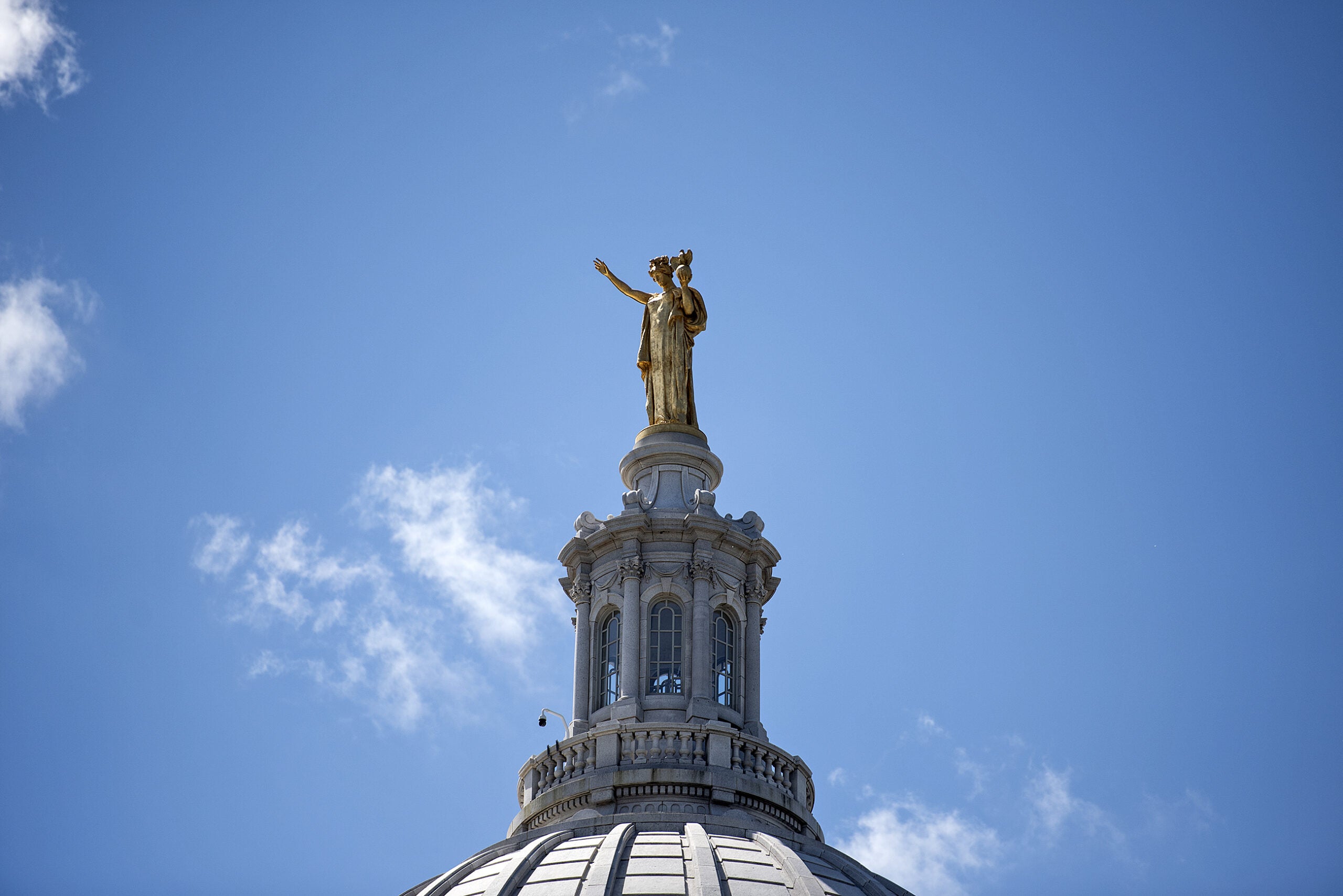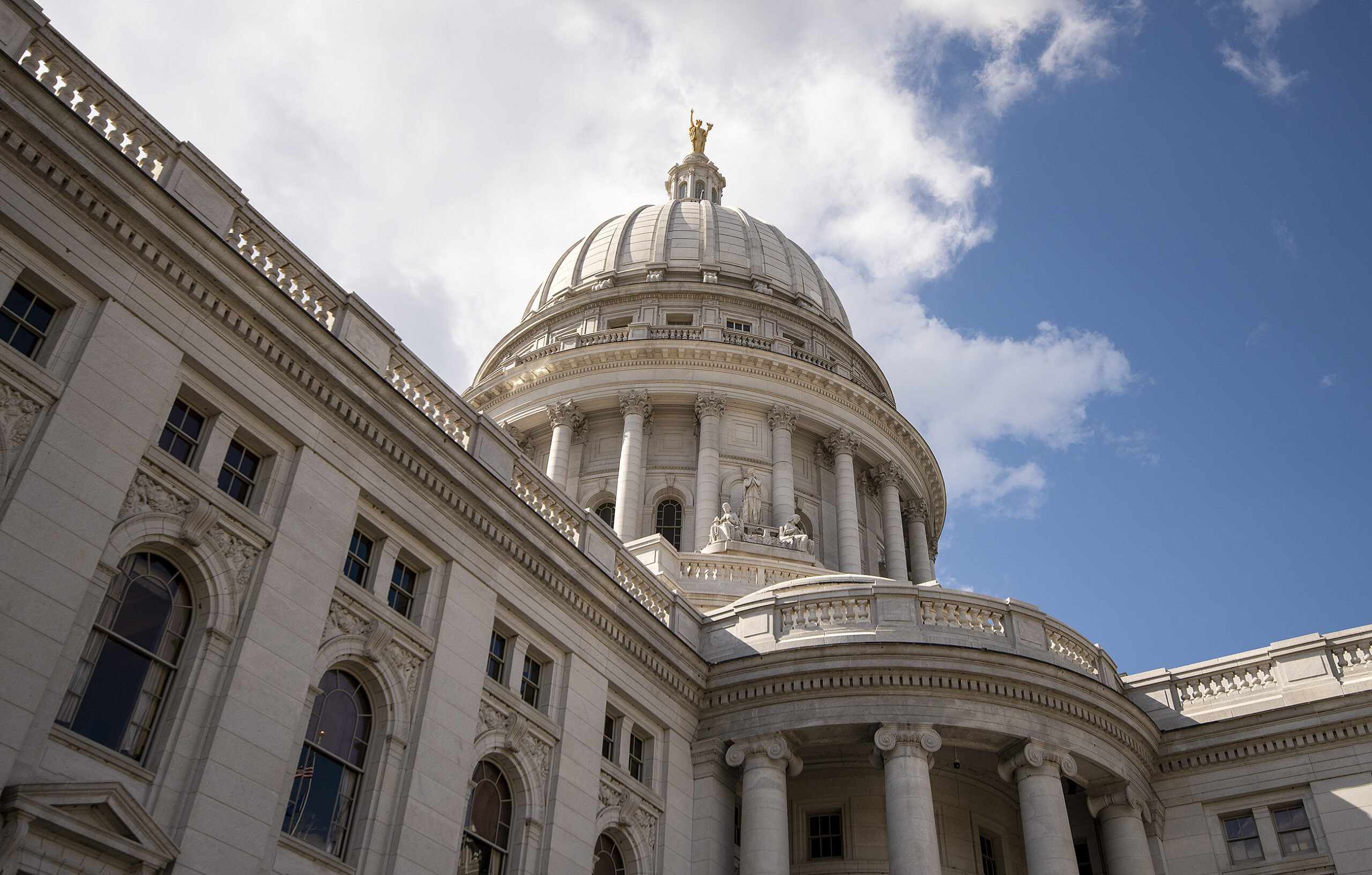Update: The Senate has voted on a number of the bills mentioned below. We’ve made a note of all the measures that it’s approved thus far.
The state Senate is convening Wednesday afternoon, with an agenda that includes some high-profile, controversial legislation. Here’s an overview of what’s on the table:
1. New Measures Combatting Heroin Abuse (Passed)
Stay informed on the latest news
Sign up for WPR’s email newsletter.
A package of bills, authored by Rep. John Nygren, would crack down on tracking prescription drugs as way to combat heroin abuse. One bill would require opiate dispensers to enter prescriptions into a statewide database within 24 hours. The other bills in the package would require police who find an opiate prescription at an overdose scene to enter it in the database; methadone and pain clinics to register with the state, require methadone treatment programs to report the number of people receiving the medication annually to the state.
2. Elimination Of Planned Parenthood Funding (1 of 2 Bills Has Passed)
A pair of bills that the Senate is taking up Tuesday will focus on Planned Parenthood. One, which has already received Assembly approval, would require the state to apply for $3.5 million in federal Title X grant money, which currently all goes to Planned Parenthood. The measure would forbid abortion providers from getting any of that money and instead give it to health departments and the state’s Well Woman program. The other bill would cost Planned Parenthood about $4 million annually by raising the cost of birth control drugs it receives through Medicaid.
3. Civil Service Overhaul (Passed)
The state Senate is also poised to vote on a bill that would overhaul Wisconsin’s civil service system. The bill would eliminate exams for applicants, bumping rights that protect more experienced workers from losing their jobs, create merit raises, extend probation periods from six months to a year and define just cause for firings.
4. Fluorescent Pink Hunting Wear (Passed)
Lawmakers will also consider whether hunters should be able to wear fluorescent pink. Right now at least half of all clothing deer hunters wear above the waist must be blaze orange. A new bill, which has already received Assembly approval, would allow hunters swap that color for pink if they so choose. The measure’s authors say the bill is designed to draw more women into hunting and provide hunters an option, although some female hunters have decried the bill as sexist.
5. Switchblade Legalization (Passed)
Currently, manufacturing, selling, transporting, purchasing or possessing a switchblade is illegal in Wisconsin for decades, and violators are subject to $10,000 in fines and nine months in jail. A Republican-authored bill would eliminate the prohibition, as well as allow anyone who can legally possess a gun to carry concealed knives of any length without a concealed carry license. Local governments would also be barred from enacting knife regulations that are stricter than state law, although they could ban blades in municipal buildings. Schools and colleges could still prohibit knives on their property.
6. Expansion Of Strip-Searching (Passed)
Right now, anyone who is arrested or detained on suspicion of a crime that isn’t a felony can be strip-searched only if he or she will be held in a jail or prison with other people for at least 12 hours. A Republican-authored bill would remove the 12-hour holding period needed to conduct a strip search. The measure will be taken up as Milwaukee is dealing with lawsuits over allegedly illegal strip searches conducted by the Police Department. Last month, the Milwaukee city attorney recommended a $5 million settlement for 14 separate suits.
7. Tougher Drunken Driving Penalties (Passed)
Another proposal would make a fourth offense drunken driving a felony punishable by up to three years in prison regardless of when the charge is filed. Right now, a fourth offense is a felony only if it’s committed within five years of a third offense. Maximum prison sentences for fifth and sixth offenses under the plan would increase from three years to five. Maximum sentences for seventh, eighth and ninth offenses would go from five years to seven years and six months. The maximum sentence for a subsequent offense would increase from seven-and-a-half years to a decade.
Wisconsin Public Radio, © Copyright 2024, Board of Regents of the University of Wisconsin System and Wisconsin Educational Communications Board.





